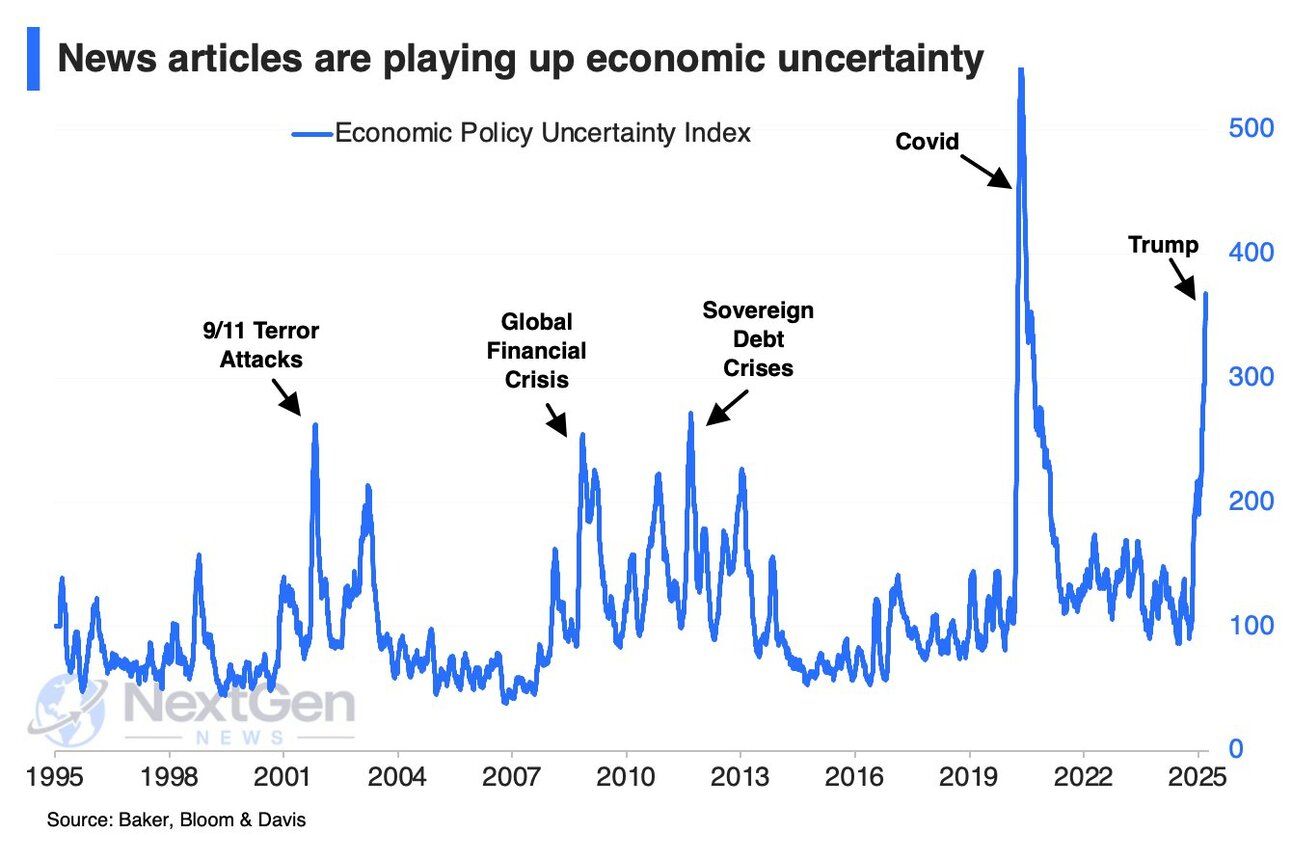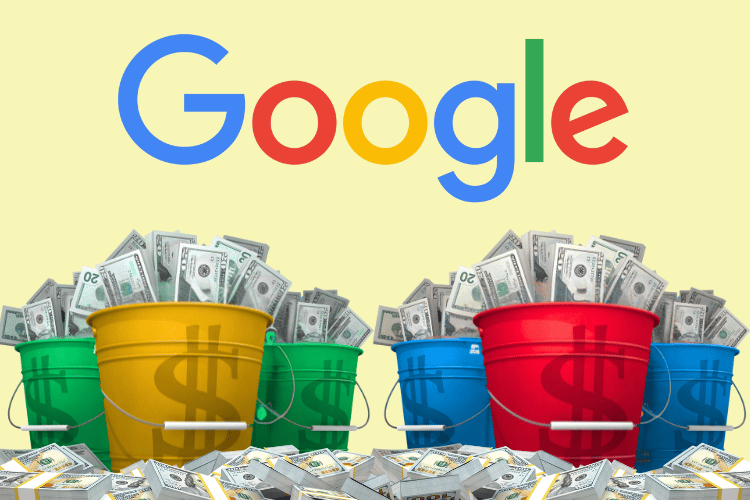Good morning. You may notice this edition is a bit longer than usual. That’s because we’re trying to expand on the news a little more rather than just reporting it, which you’ll see an example of under the ‘Economy’ section (with an original graph).
If you like our analysis, please check out our X (or Twitter) for more, which you can find at the bottom of the newsletter. As always, thank you for reading, and I hope you enjoy today’s edition.
International
Istanbul mayor arrested on terrorism charges

Burak Kara / Getty Images
The detainment comes after a government crackdown on opposition voices. On Wednesday, Turkish police arrested Istanbul Mayor Ekrem İmamoğlu—the key rival of current President Recep Tayyip Erdoğan—accusing the leader of corruption and links to terrorism.
The arrest was a major escalation of the growing suppression of opposition voices in the country and came just days before İmamoğlu was expected to be chosen as his party's presidential candidate.
These events have gone beyond our parties, political ideals… It is time to raise our voices.
Government crackdown
Current Turkish President Erdoğan has been in office for over two decades, first as prime minister and later as president. In 2028, he faces term limits that would bring his tenure to an end.
Erdoğan, however, may get a chance to assume power once again due to a constitutional technicality that would allow Parliament to schedule early elections.
Multiple other key individuals were arrested and warrants for over 100 notable figures were also issued. Critics say the arrests are part of a broader mission to silence opposition after Erdoğan has been confronted with a wave of negative public opinion.
The censorship continues
Mass protests erupted in Istanbul after İmamoğlu’s arrest, despite police shutting down roads and the city’s pro-Erdogan governor banning protests for four days.
Thousands gathered outside of Istanbul’s police headquarters and the city hall, accusing the government of orchestrating a coup attempt.
İmamoğlu’s emergence as a popular alternative to Erdoğan (see overview) has become a significant threat to his presidency. Just a day before his arrest, Imamoglu's diploma was declared void by Istanbul University, preventing him from the upcoming presidential race, as a university degree is required to run for office under Turkish law.
Deny, deny, deny: Government officials (including Erdoğan himself) have stated that the arrests of opposition leaders are not politically motivated and maintain that the courts have remained impartial.
Economy
The Fed keeps rates steady amid economic uncertainty

Kevin Dietsch / Getty Images
Our official word of the week is “uncertainty”. Following a highly anticipated meeting on Wednesday, the Federal Reserve said it will maintain interest rates at 4.25%–4.50%. The decision comes amid economic uncertainty fueled by the Trump administration's fluctuations in trade policy.
Steady rates
While interest rates will remain the same, the Fed signaled that two interest rate cuts are still on the table later this year, which could lower rates to 3.75%-4%.
The Fed also expects inflation to rise 2.8% in 2025 and reduced its forecasts for US economic growth this year, estimating a GDP increase of 1.7%, which is down 0.4% from a December projection.
The news may seem a bit anti-climactic, especially since economic pundits didn’t expect a rate cut to come this week and Powell said in December that two rate cuts would come this year.
Why not cut rates? While uncertainty is high—mainly due to trade standoffs—and growth has stunted, inflation is still above its 2% target, which has the Fed playing it safe.
Uncertainty is growing
I know I’ve said the word “uncertainty” plenty of times already, but what does it have anything to do with the Fed’s decision? The short answer is, well, everything.
It’s been a wild ride on the uncertainty roller coaster lately and our chart below proves it:
Uncertainty has become a hot topic
As uncertainty rises due to the Trump administration's significant policy changes in trade, immigration, fiscal policy, and regulation, so too does the media’s coverage of it.
Take a look at our chart:

NextGen News
Our chart shows how the Economic Policy Uncertainty Index—essentially just a fancy way of measuring how much the news is freaking out about the economy—has spiked in correlation to major events.
The higher the line, the more the news is putting it in headlines.
Okay, and? When uncertainty spikes, as it has recently, the Fed gets cautious. Higher uncertainty means businesses might hold off on hiring or investing, consumers might start budgeting, and the economy could slow down.
The most recent spike, labeled “Trump,” coincides with the political and economic shifts following Donald Trump’s return to the presidency:
His proposed policies—like massive tariffs, tax cuts, and deregulation—have economists and markets buzzing with both excitement and worry.
Economic uncertainty is on the rise again, and the Fed’s decision to keep rates at 4.25%–4.50% reflects that reality. Our chart shows just how often we’ve faced these moments of doubt, but also how we’ve gotten out of them.
Why should you care? The Fed pressing pause on rate cuts means loans and credit card debt stay expensive. For you, it might mean if you’re trying to buy your first house, mortgage rates will look a bit scary or if you want to get a small business loan you might want to wait.
Meanwhile, prices on everyday items might spike (hello, more inflation) and the job market could get shaky, so even if you’re just trying to budget with groceries, the ripple effects of uncertainty can mess with your plans.
For now, it’s a waiting game. So, whether you’re saving up for a big purchase or just trying to make sense of the headlines, keep an eye on the news (NextGen News, that is).
Entertainment
Netflix director charged with $11 million in wire fraud

Made by NextGen News
Ironically, this will probably be a Netflix documentary in two years. Federal authorities arrested director Carl Rinsch last week and accused him of misusing $11 million intended for a Netflix TV show to finance his personal interests.
Rinsch, who is best known for the historical fantasy “47 Ronin” starring Keanu Reeves, faces a sentence of 90 years in prison if convicted of money laundering, wire fraud, and using illegal funds.
Box office flop
Rinsch initially partnered up with Netflix in 2018 to make a show called “White Horse”, a series about artificial humans, and was given $44 million along with immense financial and creative discretion.
However, after cost overruns, Rinsch was able to squeeze another $11 million out of the streaming service giant.
According to the NYT, the disgraced director acted bizarrely and failed to meet production deadlines.
Then, it went downhill: Soon after, $10.5 million of the new funds were sent to a personal account of Rinsch’s, where he diverted funds intended for show production into crypto and risky stock trades, as well as luxury purchases.
The luxury purchases included hotels, divorce lawyers, five Rolls-Royces, and a nearly $400k watch.
Court documents claim that Rinsch lost over half of the $10.5 million on risky stocks before transferring the remaining funds to crypto, where he made a sizable profit. Good for him.
Later, the show was renamed "Conquest," but no episodes were ever produced before Netflix ceased production in 2021. In total, Netflix lost $55 million.
Lawyer up: Not only did Rinsch spend money on divorce lawyers, but he also used some of the stolen money to sue Netflix (yes, I’m serious). He was ordered by a judge to pay the streaming giant almost $12 million last summer.
If you’d like to support independent media…
Consider joining our Patreon. If you enjoy the newsletter and like getting non-biased, need-to-know news, it would mean the world if you would consider tossing a few bucks our way (and get insider access if you do).
We don’t have deep-pocketed sponsors or shadowy billionaires funding us (unlike other media outlets). Instead, we rely on readers like you to keep the lights on and the news flowing into your inbox.
If you’d like to keep independent media alive please consider donating to our Patreon below 👇
P.S. On top of supporting NextGen News, you’ll also get exclusive member benefits…
Grab Bag
Google just made its biggest purchase of all time

Made by NextGen News
Ahhh, it’s finally dealmaking season. On Tuesday, Google's parent company Alphabet bought cybersecurity startup Wiz in an all-cash acquisition worth $32 billion, making it the tech giant's largest acquisition ever.
Security spending
The deal—which is more than double Google’s next-expensive purchase (Motorola in 2011)—is supposed to upgrade the company’s outdated cloud business and bolster its security in an era where AI is increasingly more advanced.
Wiz who? Wiz offers security solutions to safeguard info kept in data centers, which are the powerhouses behind AI tech. The company was called the fastest-growing startup in history by the WSJ and partners with some of the largest cloud services providers in the world, like Google and its competitors, Microsoft and Amazon.
Although Google's rivals will still be able to buy Wiz's products, folding in the technology directly might help it be more competitive in the global cloud computing industry.
In terms of market share, Google commands 12%, behind Amazon Web Services, which holds over 33%, and Microsoft Azure, which has 21%.
It’s expensive for a reason: Wiz just burst onto the scene in 2020 and is already on track to generate $1 billion in revenue this year. Google tried to buy the company last year, however, it was for 40% less than the $30 billion it just bought it for.
NASA astronauts return home after being left in space

Keegan Barber / NASA via Getty Images
Gotta be a weird feeling when your space vacation finally ends. Tuesday evening, NASA astronauts Butch Wilmore and Suni Williams touched down off the coast of Florida, completing a rather unique (for lack of a better word) space journey.
Stranded in space
On June 5, 2024, Wilmore and Williams launched into space aboard Boeing’s new Starliner capsule to test if the spacecraft could be used as a reliable vessel for astronaut rotation missions, and oh boy, they were in for a harsh reality check.
The mission was only supposed to last a little over a week, yet the two astronauts just returned after an unexpected 9-month stay aboard the ISS. What went wrong?
Not long after liftoff, Starliner began to leak helium, effectively pausing their return journey until more tests could be done on the spacecraft.
Although the leaks were resolved shortly after their arrival, the Starliner then began to have propulsion issues with its thrusters, further extending their stay.
After a whole host of other issues popped up, NASA made the decision to send Starliner back to Earth unmanned and kicked Boeing out of the picture, putting SpaceX in charge of their return instead.
They saved the day: In August of last year, NASA said it would use SpaceX’s Dragon capsule to bring back the stranded astronauts in February, however, capsule issues pushed their retrieval forward a month.
See a full timeline of their stay here.
Good to be back?
While aboard the ISS, Williams and Wilmore were able to join the regular ISS crew rotation and completed scientific research along with assisting in daily operations. That being said, returning to Earth after a longer-than-expected stay in space has its downsides.
Extensive studies on astronauts have shown that spending a prolonged period in zero gravity can be detrimental to the human body:
While in microgravity—which allows astronauts to float inside a spacecraft—muscle mass and bone density are depleted.
While in space, bones can lose roughly 1% to 1.5% of their mineral density per month due to the absence of Earth's gravity, according to NASA.
Microgravity also causes blood and cerebrospinal fluid to shift upward, causing physiological changes in the eyes and brain.
To determine the impact of their extended journey, Willmore and Williams are undergoing medical examinations at NASA's Johnson Space Center in Houston.
Fun fact: The two traveled more than 121 million miles during their prolonged stay, completing 4,576 orbits of the Earth. With the flight, Williams' career total time in space now stands at 608 days, second only to Peggy Whitson among US astronauts.
How did you like today's newsletter?
Fast Facts

GIF via GIPHY
AI Anxiety: According to a recent study, ChatGPT displayed symptoms of anxiety after receiving "traumatic narratives" from users concerning crime, war, and auto accidents.
X-Factor: According to reports, the value of X has recovered to the $44 billion that Elon Musk paid to acquire the social media network in 2023.
Turnaround: In apparent retaliation against Southwest Airlines, which recently declared it was ending free checked bags after 54 years, Frontier Airlines is providing free checked bags on flights through August.
Better Betting: According to a survey conducted by the AP-NORC Center for Public Affairs Research, 60% of US citizens believe that gambling on professional sports should be legal, while only 4 out of 10 support betting on collegiate sports.
PJ Party: Airliner La Première is giving complimentary pajamas from French designer Jacquemus to passengers seated in the first-class cabin.






